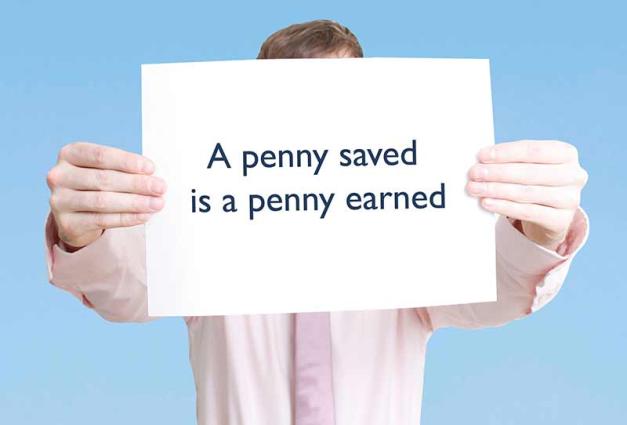The income you’re able to set aside for discretionary spending is limited, so it’s worth considering how you can use your hard-earned paycheck in ways that are most likely to make you happy. Given that you need to make tradeoffs between what you can and can’t buy, what can scientific evidence teach you about how you might make such decisions wisely?
My colleagues and I have spent the past several years examining different ways in which people spend their money. The particular distinction that we, and others, have been interested in is between what are referred to as experiential and material purchases—that is, between money spent on doing (on experiences—like meals out, tickets to events, and outdoor recreation) versus having (on “things”—like gadgets, clothing, and furniture).
Considerable research on this topic finds that people derive more happiness from their experiences than from their possessions in retrospect, and that this is in part because experiential consumption is more likely to live on in the stories we tell, which bring about positive feelings when remembered or shared. (Just think of your uncle gleefully re-telling his story about that perfect sunset after a long hike with his friends during their trip to the Grand Canyon.)
We’ve also documented that experiential purchases are more rewarding in anticipation as well. Looking forward to experiences we’re going to spend money on tends to be more pleasurable, more exciting, and less tinged with impatience than looking forward to material goods we’re planning on purchasing. Can’t you just imagine how good that sandy beach will feel under your toes, when it’s safe to travel again?
In other words, people are generally happier with the experiences they buy than with the “stuff” they buy.
But happiness is a notoriously complicated term, one that people define in multiple ways. Some scholars, for instance, distinguish between anticipatory happiness, experienced happiness, and remembered happiness. I’ve already suggested that experiences tend to advance well-being more than possessions in anticipation and in recall, but what about the happiness that comes in the here-and-now of consuming a purchase?
To find out, in large-scale studies we asked thousands of participants how they felt while in the midst of consuming an experiential or material purchase—assessing in-the-moment ratings of happiness by periodically contacting people throughout the day. We found that the consumption of material goods was not associated with much higher assessments of in-the-moment happiness than baseline happiness (when not consuming a purchase), but experiential consumption was associated with significantly higher ratings of happiness. Importantly, consuming an experiential purchase was associated with higher happiness even after controlling for the cost of the purchases participants were consuming.
To examine the robustness of these results, we looked at the particular purchases people were actually consuming and divided them into five types of experiential or material purchases. Happiness was higher for all subcategories of experiential purchases than any subcategory of material purchases. Moreover, relative to no consumption, happiness was significantly higher for four of the experiential purchase categories—outdoor activities and recreation, travel, entertainment, and food/drink purchases.
Of course, these data were collected prior to a global pandemic entering our collective consciousness. To be clear, I am not suggesting that you hop on a plane, dine inside a restaurant, or nestle into the crowd at a concert venue tomorrow (although, to be sure, businesses in these industries have been hurt considerably by the COVID-19 crisis; they will need support when we feel comfortable with such activities again). Some of the experiences that are especially delightful are those that you can’t reasonably engage in right now.
But some are: outdoor activities and recreation are among the safer experiences one can invest in at the moment. People in our studies reported notably high levels of happiness when engaging in these activities, so you might consider spending your money on doing things outside.
And as mentioned above, previous work we’ve conducted suggests that people may glean some benefits of experiential expenditures by looking back on past experiences and looking forward to future ones. This is partly due to the social value we derive from discussing our experiential purchases with others, either before or after. As vaccines provide us some light at the end of the tunnel, we can begin planning what we’ll do when it’s safe to do so. So, while you wait, why not have some conversations about what you loved doing before all this started and what you hope to do once it’s over? (In addition, talking to other people fosters feelings of social connection, benefiting both our mental and physical health; such interactions would allow us to maintain our social ties even while maintaining our distance.)
Broadly, compared to buying possessions, purchasing experiences results in increased anticipatory, remembered, and, as we recently found, experienced happiness. One point to note, though, is that people in these studies consumed material purchases far more often than experiential purchases. Thus, I’d contend that shifting—even slightly—from material to experiential consumption would likely increase our well-being. We’d be wise to remember that advice when we’re again safely able to partake in the experiences that are likely to bring us so much joy.
For Further Reading
Kumar, A., Killingsworth, M. A., & Gilovich, T. (2020). Spending on doing promotes more moment-to-moment happiness than spending on having. Journal of Experimental Social Psychology, 88, 103971.
Gilovich, T., & Kumar, A. (2015). We’ll always have Paris: The hedonic payoff from experiential and material investments. In M. Zanna and J. Olson (Eds.), Advances in Experimental Social Psychology, Vol. 51 (pp. 147-187). New York: Elsevier.
Amit Kumar is an assistant professor of Marketing and Psychology at the University of Texas at Austin. His research focuses on happiness, prosociality, and consumer behavior. For more information about this work, you can check out http://www.kumar-amit.com




